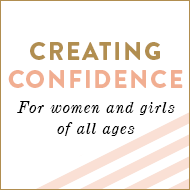And enter The Troll.
Troll: (noun) A person who shows disregard on the internet by starting arguments or upsetting people by posting inflammatory, extraneous or off topic messages in an online community, either accidentally or with the deliberate intent of provoking readers into an emotional response.
Attending high school and middle in the early 2000s, I was right at the onset of social media. I remember being bullied via anonymous screen names on AIM (AOL Instant Messenger). I believe around my junior year of high school I created a Myspace page. By the time I enrolled in college at Coastal Carolina University, I was allowed to create a Facebook page (those were the days when you have to have a college email address to create a Facebook page.) I had my fair share of mean comments, messages and remarks, but it's nothing like what teenagers and pre-teens are subjected to these days.
In the various social media sites, including Facebook, Instagram, Twitter and more, teens can be constantly bullied without a seeming escape. The most obvious answer to adults would be to just delete those social accounts. But I believe to young teens, deleting social media accounts to avoid bullying may not seem like an option for many of them. With so much of their lives focused on the laptop and their cell phones, deleting their social media account would be a sort of "social suicide."
I find that people who use social media accounts tend to be less inhibited. I'm not quite sure why but there seems to be a disconnect between people and their social profiles in some cases, so they feel they can bully or degrade someone and get away with it. A lot of time there is no censorship, manners or even common courtesy online.
Cyber bullying among teens is a bigger issue than many of you have thought. Consider these 11 facts on cyber bulling provided by www.dosomething.org:
1. Nearly 42% of kids have been bullied online. 1 in 4 has had it happen more than once.
2. 70% of students report seeing frequent bullying online.
3. Over 80% of teens use a cell phone regularly, making it the most common medium for cyber bullying.
4. 68% of teens agree that cyber bullying is a serious problem.
5. 81% of young people think bullying online is easier to get away with than bullying in person.
6. 90% of teens who have seen social-media bullying say they have ignored it. 84% have seen others tell cyber bullies to stop.
7. Only 1 in 10 victims will inform a parent or trusted adult of their abuse
8. Girls are about twice as likely as boys to be victims and perpetrators of cyber bullying.
9. About 58% of kids admit someone has said mean or hurtful things to them online. More than 4 out 10 say it has happened more than once.
10. About 75% have visited a website bashing another student
11. Bullying victims are 2 to 9 times more likely to consider committing suicide
My question to you: Have you or anyone you know ever been a victim of cyber bullying? How did it make you feel and what do you think we can do to make a difference?
Check out the video below from www.myfoxdc.com about the dangers of cyber bullying. DC News FOX 5 DC WTTG
















